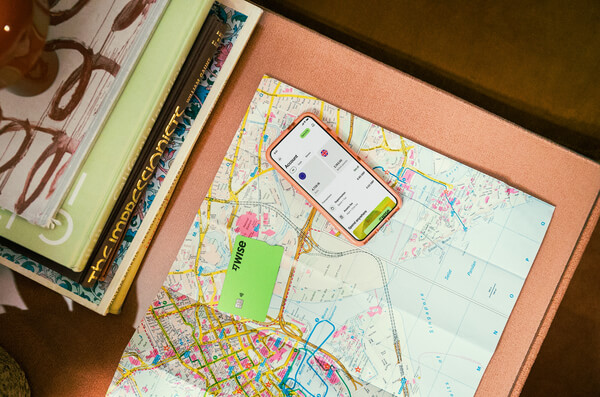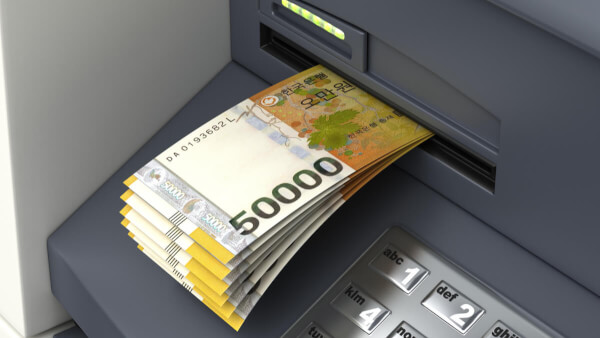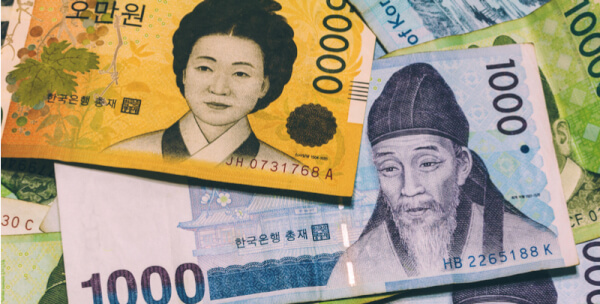Best Time to Visit Korea from Australia: What to do, weather, visas, and more
Wondering when the best time to visit Korea from Australia is? Learn more about weather, seasons and what to do throughout the year in Korea.

Whether drawn by a love of Korean BBQ, K-pop music, a thriving beauty industry or even a fascination triggered by watching Netflix’s Squid Game, South Korea is fast becoming a must-see destination for Australians.
Confirmed as a trending travel hot-spot for Aussies in 2025 based on recent data insights into the top destination searches¹, whether for tourism, study or work, South Korea has much to offer. From buzzing, modern metropolises to breathtaking natural landscapes, a rich culture, diverse dining options and more, you’ll never run out of things to do, see and eat!
Whether you’re a lover of all things Korean, or completely new to this often lesser-known Asian destination, we’ve got the details you need. From understanding visa requirements to sorting out your finances and insurance, here’s what to expect when heading abroad to South Korea.
We'll also introduce to you Wise Travel Card that can help you save on international transactions with currency conversions at mid-market exchange rates.
| Table of contents |
|---|
Australian passport holders can travel to South Korea for tourism purposes visa-free for up to 90 days. While a visa waiver (K-ETA) was previously required, this has been temporarily suspended until 31 December 2024.²
For travel in 2025, it is likely the K-ETA requirement will be reinstated. We recommend checking the most up-to-date advice for this on the official K-ETA website before booking your travel.
To study in South Korea for more than 90 days, international students need a D-2 student visa (or a D-4 visa for short-term training). This can be obtained from a Korean embassy or consulate in Australia after receiving a Certificate of Admission from a Korean university and supplying other relevant documentation.³ The cost and duration of a student visa will vary based on which type is applied for.
To work or stay in South Korea long-term, a visa will be required. For those aged between 18 and 30, a Working Holiday Visa is available. This visa allows you to live and work in South Korea for up to 1 year, though several rules and conditions apply regarding eligibility and what is permitted.⁴ You can apply for this visa directly with your nearest South Korean embassy or consulate.
For all other work-related or long-stay visas, we recommend reviewing your options via the official South Korea Visa Portal website. There are numerous visa classes and subclasses available that you may be eligible to apply for based on your circumstances.
Should you be travelling as a tourist to South Korea as an Australian resident on a foreign passport, you will need to review whether your country is counted as visa-exempt by South Korean immigration law. You may be required to obtain a K-ETA as mentioned above or a separate tourist visa; we recommend contacting your local South Korean embassy for current advice.
For student or working and long-stay visas, the same rules and methods for application apply for Australian residents as for Australian citizens. However, your eligibility for different visa types and classes may differ depending on your passport nationality.
As noted above, currently no visa or K-ETA is required for travel to South Korea for Australian passport holders or other visa-exempt nations when staying under 90 days.
For all foreign passport holders who are not visa-exempt, you will be required to obtain a tourist visa by following these steps⁵:
Who you can fly with and how long it will take to get from Australia to South Korea will vary based on where you depart from and whether you opt for a direct option or one with a stopover.
To give an idea of what to expect, below are some of the most popular options for departures from major Australian cities to South Korea’s main airport, Incheon, which is in the country's capital, Seoul. Currently, direct flights are only available between cities on Australia’s East coast. However, regardless of where you depart from, opting for a flight with a stopover on the way can be a great way to explore another destination on the same trip.
| Departure City | Arrival City | Airlines | Flight Duration | Stopovers |
|---|---|---|---|---|
| Sydney | Seoul | Korean Air, Asiana Airlines, Jetstar, Singapore Airlines, Cathay Pacific | Approximately 10h+ (direct) or 13h+ (with stopovers) | Direct flights available; stopovers in Singapore or Hong Kong |
| Melbourne | Seoul | Korean Air, Asiana Airlines, Jetstar, Singapore Airlines, Cathay Pacific | Approximately 10h+ (direct) or 13h+ (with stopovers) | Direct flights available; stopovers in Singapore or Hong Kong |
| Brisbane | Seoul | Korean Air, Jetstar, Singapore Airlines, Cathay Pacific | Approximately 9h+ (direct) or 13h+ (with stopovers) | Direct flights available; stopovers in Singapore or Hong Kong |
| Perth | Seoul | Singapore Airlines, Cathay Pacific, Malaysia Airlines, Korean Air | Approximately 12h+ | No direct flights; typical stopovers in Singapore, Hong Kong, or Kuala Lumpur |
Similar to Australia, South Korea has strict customs regulations that all visitors must adhere to. While personal items such as clothing, toiletries, personal electronics and prescribed medications are typically allowed to be brought in without issue, it's important to be aware of items that are restricted or prohibited.
These include⁶:
To avoid issues upon arrival and remain compliant with South Korean legislation, it's advisable to exclude restricted or prohibited items from your luggage or declare them if necessary. For comprehensive and official information, please refer to the Korea Customs Service's guidelines.
Currently, when traveling to Korea, you can bring in goods worth up to US$800 without paying taxes. You can also bring in 2 bottles of liquor (up to 2L, valued at US$400), 200 cigarettes, 20ml of e-cigarette liquid (with less than 1% nicotine) and 100 ml of perfume.⁶
To ensure a stress-free journey to South Korea and a smooth arrival, make sure you have the following:
Vaccination records or proof of insurance are not generally required for short-term visitors. However, if you have recently visited a country designated as a 'quarantine inspection required area' you may be required to register with the Korean quarantine system before departure.²
This generally means any country where cholera, polio, plague, Middle East Respiratory Syndrome (MERS), or Avian Influenza Human Infection may be present. Check with your local embassy or consulate for advice regarding this as needed.
Ready to start your adventure in South Korea? Here are a few things to keep in mind to make the most of your trip:
An essential for any trips overseas, travel insurance is strongly recommended for travel to South Korea. Emergency medical care of a good standard is readily accessible throughout the country but can be expensive and payment may be required upfront.² As such, comprehensive insurance for medical care, alongside cancellations, theft and more, should be arranged before departing.
Also a popular destination for medical tourism, if you are travelling to Korea for this reason, be sure to check your policy covers any emergencies related to complications from this.
Both cash and card can be used in South Korea, though card payments are often preferred, especially in larger cities. Whichever method you choose, you’ll be subject to fluctuating exchange rates and often several different fees. To help your money go further, it’s wise to spend some time researching ways to minimise these added costs and access the best rates while away.
While South Korea is a card-friendly country, it's always smart to have some local currency for street food vendors, local markets, or transport top-ups. Whether you withdraw this on arrival or arrange it beforehand, you'll want to ensure you’re getting the best exchange rate with minimal fees.
A dedicated travel money card can be an ideal solution for this. It allows you to track exchange rates, convert funds from AUD to South Korean Won (KRW) when the rate is good, and then hold that balance to withdraw from ATMs as needed. Look for a provider that uses the mid-market exchange rate with no hidden markups and low, transparent fees for ATM use abroad. This helps you maximise your budget and avoid travelling with large amounts of cash.
Best Ways to Get Foreign Currency 👉
Visa and Mastercard are widely accepted in South Korea, meaning your Australian-issued debit or credit card will likely work for most payments. However, digital wallet support can be different from Australia. Google Pay is not currently supported, and Apple Pay acceptance is limited, with local Korean platforms being preferred. It's always a good idea to carry a physical card.
While convenient, using your home bank's card abroad can come with several costly fees, including:
For this reason, it is important to review your card provider's terms and conditions for not only the foreign transaction fees but also the currency conversion rate. This is usually marked up from the mid-market exchange rate you usually see on Google—and the one used by Wise.
Don't let high bank fees and poor exchange rates eat into your South Korean travel budget. With the Wise card, you can hold, spend, and withdraw KRW like a local. The Wise card is a simple way to save up to 7x when you're spending internationally. You can spend in 150+ countries at mid-market rate — basically the rate you see on Google. With no foreign transaction fees and low, transparent pricing, Wise usually gives you the best value for your money.

Simply create a Wise account for free, order a card and top-up AUD to get started. Having a physical Wise card allows you to make chip and pin payments, as well as make some free ATM withdrawals each month for when you're abroad. You can get digital cards and add to your Google or Apple Pay wallet for instant use. Spend directly with the Wise account in AUD and let auto-conversion do the trick or convert in advance to your desired currency. You can hold and exchange 40+ currencies in your Wise account and spend the currencies you hold for free.
Wherever your travel takes you, the Wise card makes spending money abroad cheaper and easier.
This general advice does not take into account your objectives, financial circumstances or needs and you should consider if it is appropriate for you. Savings claim based on our rates vs. selected Australian banks and other similar providers in Jan 2025. To learn more please visit https://growth-layer.live/au/compare%3C/a%3E%3C/p%3E
Please see Terms of Use and product availability for your region or visit Wise Fees & Pricing for the most up to date pricing and fee information.
Sources:
Sources checked on 19 September 2025
*Please see terms of use and product availability for your region or visit Wise fees and pricing for the most up to date pricing and fee information.
This publication is provided for general information purposes and does not constitute legal, tax or other professional advice from Wise Payments Limited or its subsidiaries and its affiliates, and it is not intended as a substitute for obtaining advice from a financial advisor or any other professional.
We make no representations, warranties or guarantees, whether expressed or implied, that the content in the publication is accurate, complete or up to date.

Wondering when the best time to visit Korea from Australia is? Learn more about weather, seasons and what to do throughout the year in Korea.

Here all you need to know about using ATMs in South Korea. The fees, ATMs that accept foreign cards and what to keep in mind before and during your stay.

Modern and fast-paced, South Korea is becoming more and more on the radar for tourists and expats alike. South Korea is the 6th most visited country in Asia,...